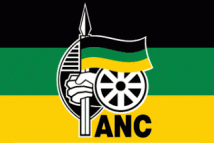The ANC's grip is slipping
 2014 is election year and we already know the ANC’s grip on power is slipping – the question is, by how much?
2014 is election year and we already know the ANC’s grip on power is slipping – the question is, by how much?Will it sink below 60% or, heaven forbid, 55%? Experience elsewhere in Africa tells us this is a dangerous tipping point, where the power elites resort to ever more drastic measures to retain their grip on power.
Everywhere you look you see the signs of change: the red berets of the Julius Malema’s Economic Freedom Fighters, ready to bring the revolution to the suburbs and the mines; the blue T-shirts of the Democratic Alliance, now firmly ensconced in the townships and eating away at the once solid support base of the ruling party, which resembles, with each passing day, the paranoid and power-obsessed Zanu-PF of Zimbabwe.
As Songezo Zibi writes in the latest Financial Mail, the governing ANC is increasingly resorting to the language of fear, with some of its top leaders telling citizens to fear the return of the "boers".
“This invocation of racial reasoning and irrational fear is not only dangerous but demonstrates the extent to which it has veered from its own, repeatedly chosen mandate - to "unite all sections of society".
“It feels under siege, detests the involvement of citizens in the affairs of state and has now entrenched a tradition of state security paranoia in order to hide from public view the unseemly proclivities of those it has deployed. It is from this culture that aspects of the Protection of State Information Bill which appear to be inconsistent with an open society have been promulgated into law.”
To protect the profligate expenditure of public funds for the personal comfort of the president, the party's ministers have gone to the extent of invoking apartheid-era legislation like the National Key Points Act. Astonishingly, ministers now remind the public that it is illegal to publish pictures of the president's home, which has been expensively built with public funds. Little wonder there are calls for President Zuma to resign by newly elected president of the National Union of Metalworkers of South Africa (Numsa), Andrew Chirwa, following the Nkandla scandal.
Meanwhile, a Sunday Times survey revealed that 51% of registered ANC members want Zuma to step down after it emerged that over R200 million of state funds was used to upgrade his Nkandla homestead.
So as we welcome in the New Year, be prepared for fireworks. There is a war on for the soul of the ANC, and it is likely to get dirty.
Also expect more labour troubles this year. The Association of Mineworkers and Construction Union (Amcu) has rejected the 8% wage increase agreed last year with the Chamber of Mines with Numsa and other unions, and is mobilising its members behind demands for a basic minimum wage of R12,500 for entry level workers.
The current political climate is fertile ground for radicals. Julius Malema’s corruption scandals have been forgotten as he stokes the flames of discord and taps into a genuine groundswell of rebellion among the poor. Contempt for the rule of law is growing, if the frequency of local community violence is anything to go by – from recurring xenophobic attacks in Johannesburg and Port Elizabeth to violent protests against under-performing municipalities in numerous parts of the country. There’s no question that basic living conditions have improved for most South Africans, but the gravy train has passed them by. The shanty residents of Diepsloot in Johannesburg of Greenfields in Port Elizabeth look at the extravagance of the country’s leaders and realise the more things change, the more they stay the same.
The elephant in the room is, of course, education – or lack of it. Mamphela Ramphele, founder of the Agang SA political party, warns that unless we address the real source of inequality in South Africa – an education system where 3 out of 10 is considered a pass – all efforts at affirmative action will come to nought. The Sunday Times comments that such manipulations of results “speaks of a future in which the matric certificate will very soon not be worth the paper it's written on.
“The Education Department can bloat the pass mark all it likes but, if no one trusts it, what's the point?”
If we don’t start getting our education system in order, it’s “Mugabe, here we come” as Mamphela Ramphele so eloquently put it.
















